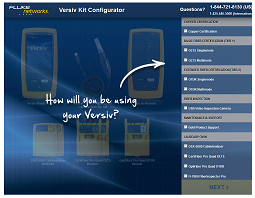Understanding ISO/IEC 14763-3 Cabling Standards
January 14, 2016 / General, Standard and Certification, Industrial Networks
ISO/IEC 14763-3 edition 2 was published in 2014. This standard supports the implementation and operation of customer premises cabling by specifying systems and methods for inspecting and testing optical fiber cabling. In 2015, a corrigendum was published. Currently, an amendment is under review to make further corrections. Also, a supplement to the amendment was added.
The corrigendum made changes to connecting hardware attenuation values and modified the equations for test limits. The amendment made corrections to end face inspection, test methods, and uncertainty. The supplement to the amendment fixed errors within the uncertainties. Details of the changes are described herein.
Standards are constantly changing in response to commercial changes, and are intended to align with customer needs. Sometimes the changes may appear confusing, as in this case, so it is a good idea to pay closer attention to developments in standards.
Corrigendum 1
- Single-mode connecting hardware attenuation for “random mated” (mating two reference-grade connectors) was changed from 0.30 dB maximum to 0.25 dB maximum1
- Single-mode connecting hardware attenuation for “mated against reference” (mating an unknown connector to a reference grade connector) was changed from 0.65 dB maximum to 0.75 dB maximum2
This correction was made to align actual data to the standard. The IEC connector standard referenced in the footnotes uses the attenuation values for an LC/APC connector. Since an APC polish single-mode connector typically has higher attenuation than a PC connector, it is used to represent the worst case.
Regarding the change for the treatment of permanent link test limits, these equations are now used:
- Multimode: (2 x 0.50 dB) + (sum cable attenuation) + (sum embedded connection attenuation)
- Single-mode: (2 x 0.75 dB) + (sum cable attenuation) + (sum embedded connection attenuation)
These equations use the connector attenuation values for “mated against reference”. For the multimode value of 0.50 dB, a Grade B performance for an LC/PC is used. For the single-mode value of 0.75 dB, a Grade C performance is used for an LC/APC.
1 For 50% as defined by a Grade C connector performance standard.
2 For all cases as defined by a Grade C connector performance standard.
Amendment 1
Amendment 1 is in committee draft and contains information about inspecting connector end faces used in installed cabling and test cords. The connectors are types with a single fiber, such as an LC connector, or with multiple fibers, such as an MPO connector. Recommendations for cleaning these interfaces are included. The amendment replaces the previously required inspection annex with a now recommended annex. The reason is that during a 2015 subcommittee meeting, it was reported that automated analysis of connector end faces is not consistent among suppliers - results vary. Pending investigation by a task group asked to develop a calibration process, end face inspection will remain informative (recommended).
Amendment 1 contains three tables for inspection requirements. Each table has information on allowable scratches and defects for a given return loss.
- Multimode 20 dB for cylindrical (e.g. LC) and rectangular ferrules (e.g. MPO).
- Single-mode 35 dB for a PC cylindrical ferrules only (e.g. LC).
- Single-mode 60 dB APC for cylindrical (e.g. LC) or rectangular ferrules (e.g. MPO).
The tables for inspection are copied from IEC 61300-3-35, the standard used by manufacturers of inspection equipment. One issue that is under investigation is the difference in requirements for single-mode PC connectors. IEC 61300-3-35 specifies a 45 dB return loss and ISO/IEC 14763-3 requires a 35 dB return loss. As a workable solution, the information from IEC 61300-3-35 for 45 dB return loss with minor modifications may be used. This will be discussed at the February 2016 meeting.
Supplement to Amendment 1
The supplement to Amendment 1 simply corrects uncertainty values for the test methods. The uncertainty assigned to various test methods is a separate topic.
Wrap up
As mentioned earlier, standards are not stagnant and in today’s climate standards change quicker than ever. It is sometimes difficult to keep up with complex standards. Fortunately, companies such as Fluke Networks are paying close attention to these changes and providing guidance with communications and with up to date test equipment used for compliance testing.





